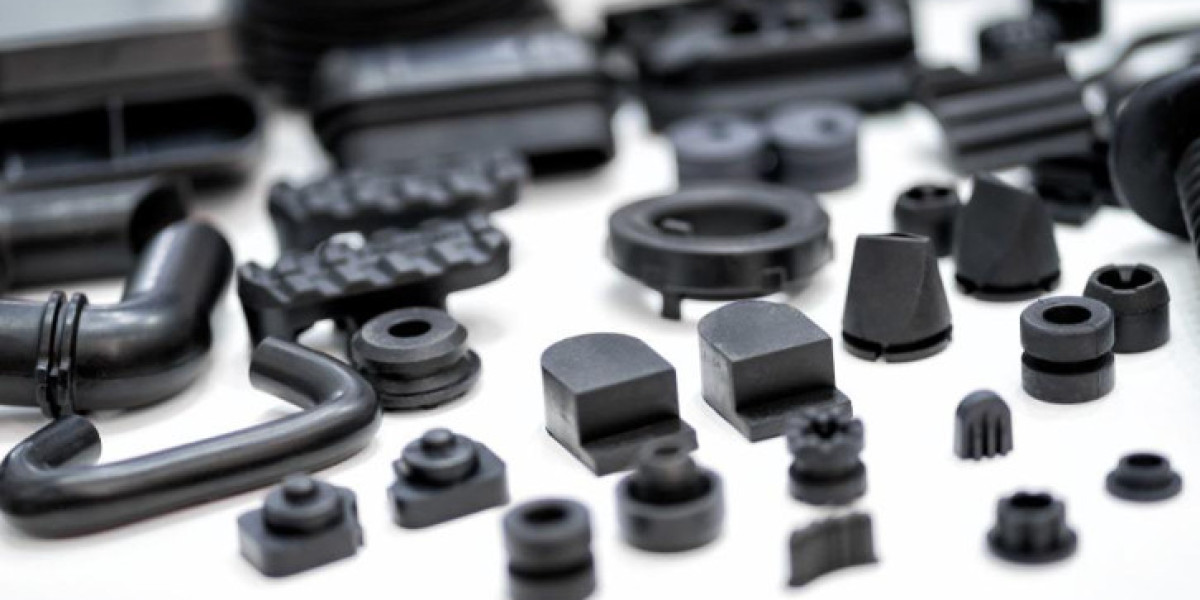Rubber products are ubiquitous in modern industries, providing essential support in various applications, from automotive parts to household appliances. Molded rubber products, in particular, stand out for their versatility, durability, and cost-effectiveness. This article explores the world of molded rubber products manufacturer, shedding light on the manufacturing process, benefits, and applications across diverse industries.
Understanding Molded Rubber Products
Molded rubber products are created through a process that shapes raw rubber materials into specific designs by compressing or injecting them into molds. These molds can be customized to meet specific dimensional and functional requirements, making molded rubber products ideal for parts that need flexibility, resilience, and wear resistance. The process enables manufacturers to create a wide range of products, including gaskets, seals, hoses, bushings, bumpers, and more.
The Manufacturing Process of Molded Rubber Products
The manufacturing of molded rubber products generally involves three main techniques:
Compression Molding
In this method, pre-measured raw rubber is placed into a mold cavity. The mold is then closed and subjected to heat and pressure. The rubber fills the cavity, taking on its shape as it cures. Compression molding is popular for large and durable parts due to its cost-effectiveness and high-quality output.Injection Molding
This method uses specialized machinery to inject heated rubber into a mold cavity. Injection molding is ideal for high-volume production due to its speed and precision. It is commonly used to create smaller parts with intricate details, such as seals, O-rings, and grommets.Transfer Molding
Transfer molding involves pre-heating the rubber, placing it into a chamber, and then transferring it into a mold. It combines features of both compression and injection molding, making it suitable for products with delicate and complex shapes.
Benefits of Molded Rubber Products
Molded rubber products offer a host of benefits, making them highly desirable across different sectors:
- Durability: Molded rubber is incredibly resilient to wear, tear, and extreme temperatures, making it suitable for harsh environments.
- Versatility: Rubber molding allows for the production of a wide array of products that meet specific performance criteria, from flexibility to impact resistance.
- Cost-Effectiveness: Rubber molding is a relatively low-cost manufacturing process, particularly for high-volume production, allowing companies to produce durable parts without high overheads.
- Customization: Manufacturers can adjust mold designs to suit unique specifications, resulting in highly customized products tailored to industry requirements.
Applications of Molded Rubber Products
Due to their durability and customization options, molded rubber products serve a broad spectrum of applications:
- Automotive Industry: Molded rubber is extensively used in the automotive sector to produce components like seals, gaskets, belts, and hoses that can withstand heat and pressure in engines and transmissions.
- Aerospace: Rubber products in aerospace must meet stringent standards for performance and safety. Molded rubber is ideal for vibration isolation mounts, O-rings, and fuel system components.
- Industrial Machinery: Rubber components are used in machinery as vibration dampeners, shock absorbers, and protective covers to enhance longevity and safety.
- Medical Equipment: Molded rubber parts in medical devices, such as syringe stoppers and seals, are essential for maintaining sterility and precision.
- Construction: Rubber molding finds applications in construction equipment, serving as bumpers, mats, and other components that require durability and flexibility.
Selecting a Molded Rubber Product Manufacturer
Choosing the right manufacturer is crucial for ensuring the quality, durability, and precision of molded rubber products. Here are some key considerations:
- Experience and Expertise: Look for a manufacturer with a proven track record in producing high-quality molded rubber products for your industry.
- Customization Capabilities: Manufacturers with custom mold design capabilities can create parts tailored to unique specifications, which is particularly beneficial for specialized applications.
- Quality Assurance: Certifications, such as ISO, indicate that the manufacturer adheres to rigorous quality standards.
- Material Selection: A good manufacturer offers a range of rubber materials (natural rubber, nitrile, silicone, etc.) that can be customized based on specific applications and environments.
- Production Volume and Lead Times: Consider whether the manufacturer can meet the production volume and deadlines required by your project.
Trends in Molded Rubber Product Manufacturing
The field of molded rubber manufacturing is evolving with advancements in technology:
- Eco-Friendly Materials: Many manufacturers are transitioning to sustainable rubber materials and recycling practices, aiming to reduce the industry’s environmental impact.
- Automated Processes: Automation in molding processes is helping manufacturers improve precision, reduce errors, and enhance productivity.
- Enhanced Customization: Digital design tools and 3D printing technologies are allowing manufacturers to offer even greater customization, from prototypes to large-scale production.
Conclusion
Molded rubber products are indispensable across a wide range of industries, offering resilience, versatility, and cost-efficiency. By understanding the manufacturing process and selecting the right manufacturer, companies can harness the full benefits of molded rubber to enhance product performance and durability. Whether in automotive, aerospace, medical, or industrial applications, molded rubber products will continue to play a vital role in advancing technology and innovation.








